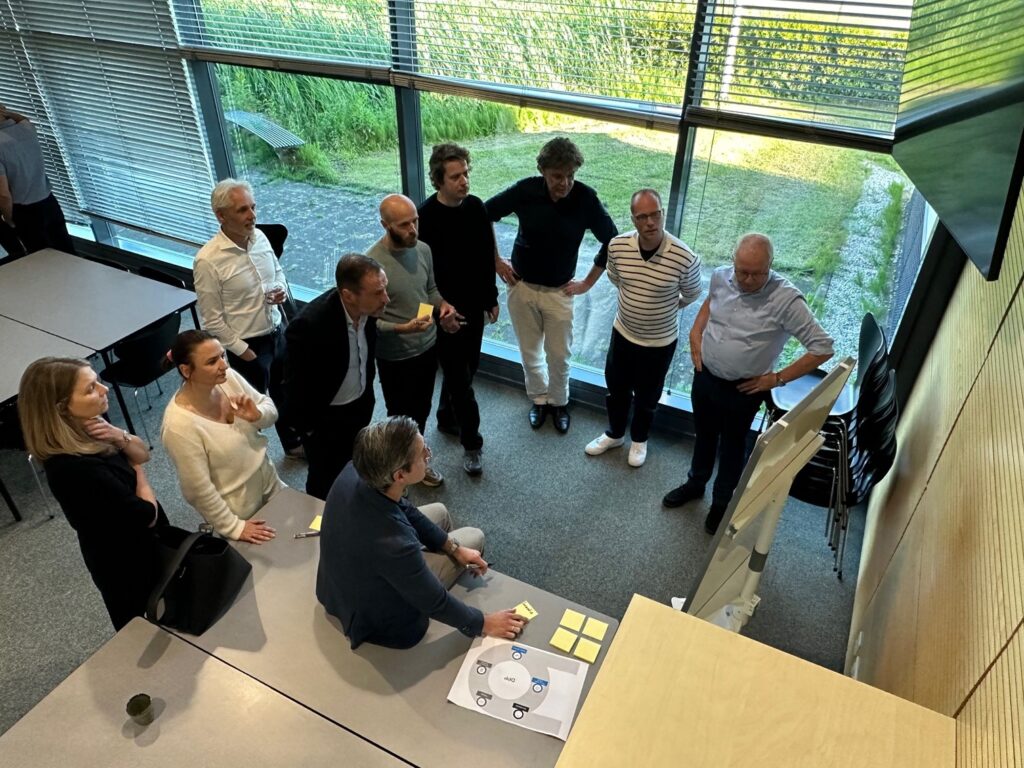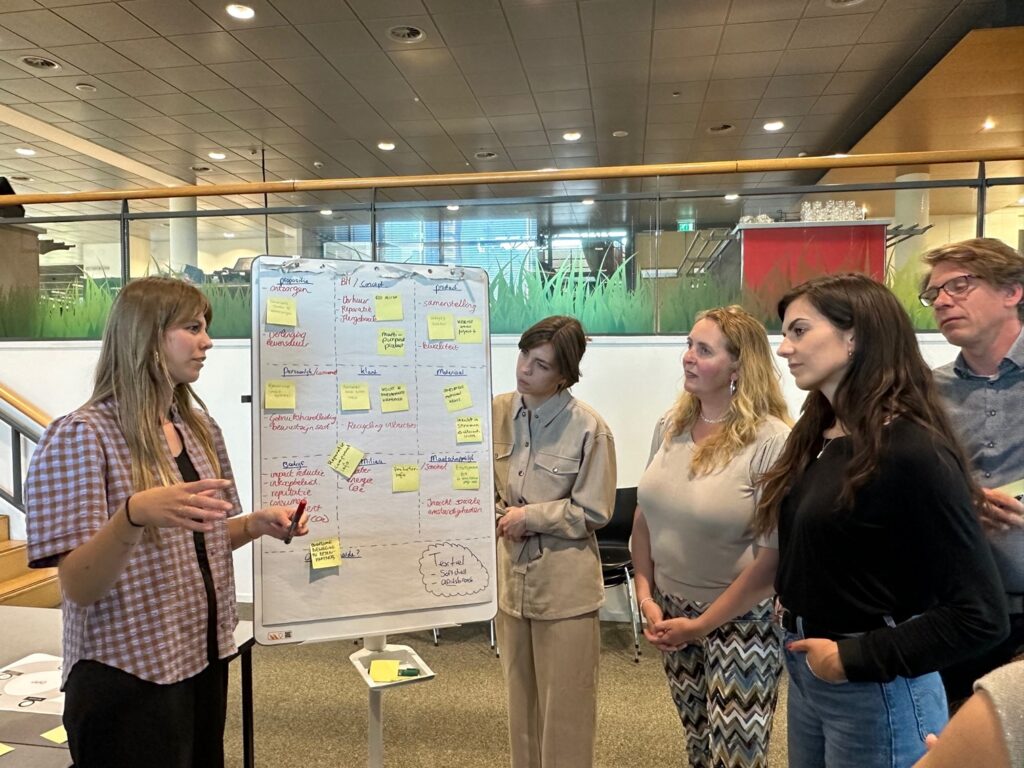
Why do companies want to get started with Digital Product Passports (DPPs)? In other words – what are the business opportunities if you start working with this technology? That was the topic of discussion at the fourth meeting of our expert group session DPP. In this study, part of Thuiswinkel.org’s ShoppingTomorrow programme, we explore what it takes to implement a scalable DPP.
Many companies still see sustainability as an obligation. Therefore, they also see it as work that has to be done, rather than work that contributes to delivering value. To make that shift, we had some of the experts talk about their take on sustainability. These good examples placed sustainability in a broader perspective, drawing value as a concept much wider than just compliance.
👉 Laura talked about the sustainable ambitions and progress at Intergamma. They see data as key to enabling sustainable transformation. She explained what they already know and where their quest is taking them.
👉 Roel from PwC showed us that value goes far beyond compliance. The DPP is therefore the gateway to all kinds of new business models.
👉 Bram from GS1 Netherlands talked about continuing to develop on existing structures as an opportunity. The building blocks for a scalable DPP are already there – those are a great starting point!
👉 Peter took us through the opportunities and challenges for financing circular business models on behalf of Rabobank. He indicated that the DPP will play an important role in accessing capital.

The examples of circular success stories ran briskly as they rightly provoked enthusiasm and interaction among the experts:
🧼 Birgitte and Pieter from Alpheios told us about their years of experience with circular projects and DPPs. They showed how DPPs inspire new projects as well as being a business opportunity, for instance by pointing out their key role in winning tenders. 🚲 Marianne from Decathlon showed us how they are transforming their business model, knowing that circularity is the future. A great example of a company building a sustainable proposition with clear goals.

🟨 We were tight on time, but still found room to put the experts to work. We used post-its to map out how the DPP adds value. This is important input that we use to show the market that sustainability is not just ‘a compliance party’, but contributes to our common future in many ways.
Besides discussing business opportunities, the rollout of a scalable DPP was on the agenda. We drew up a blueprint of the rollout of the DPP to help companies that want to get started. This blueprint is divided into two phases: ‘the initial rollout’ and ‘continuous improvement’. We are currently working with the experts to fine-tune this blueprint. Would you like a preview, or are you curious about the findings of our expert group? Then get in touch, we happily give you an update!